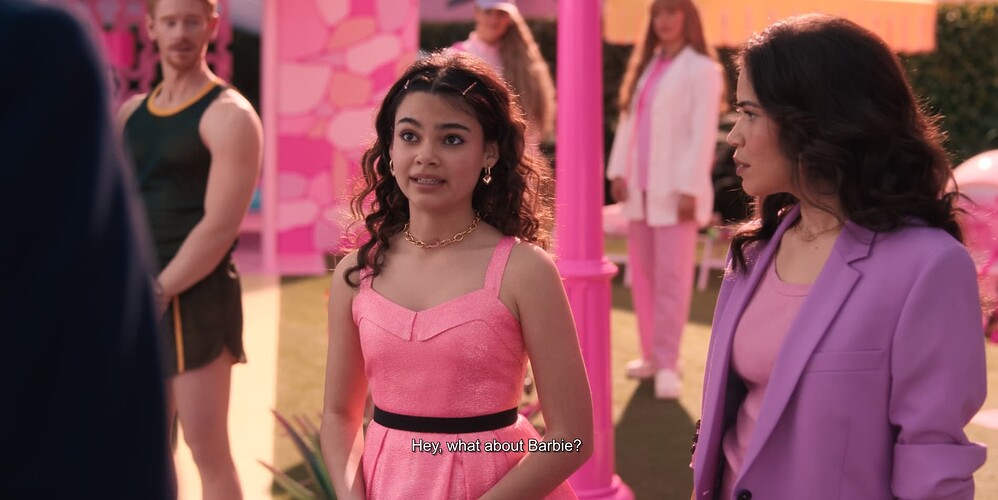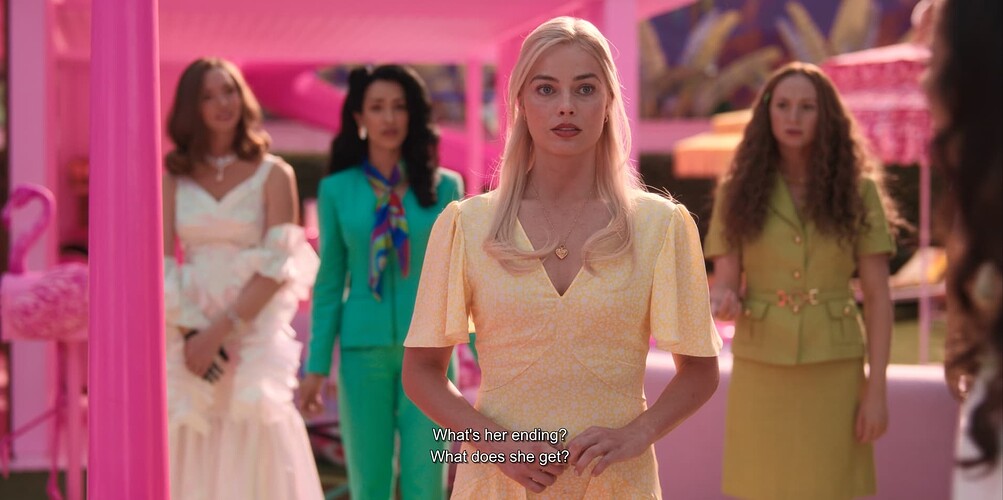Just watched this tonight with Barbie-loving family members. And before the movie started, since my twin grand-nieces (who are whip-smart, but also 12) were watching, I gave them a little help with the timelines. Which:
YES.
This movie has two timelines, essentially. One is shot warm and golden and glowy. That’s the past timeline. The dance. Christmas morning, etc. Should you be watching and wondering which timeline you’re in, the color filters are your guide.
The other is shot cold and blue-gray. That’s the present, or rather, REAL timeline.
It may also help to know that Little Women was originally TWO separate volumes, one published in 1868, the other a year later in 1869. The first volume is the happy book. It’s Christmas morning, the girls as adolescents, it’s dances, it’s fun. The second book opens with Meg getting married. It’s very serious, and at times very much of a downer. The second volume, though roughly equal in length to the first volume, is typically extremely truncated in movie adaptations. It’s a whole lot more real and a whole lot less nostalgic and fun.
And Greta Gerwig knows those things.
Because not only does this movie have two timelines, but ONE of those timelines is an unreliable narrator. The first timeline is not really the past. It’s the past that Jo/Louisa May Alcott wrote as the first volume of Little Women. Everything we see in that “past”, golden-light timeline in the movie is kind of real. Real-ish. But also maybe shot through with an unreliable narrator’s sense of nostalgia, too.
And then note: when Jo goes after Bhaer and they marry and have their happy ever after ending…it’s shot in the gold, warm tones of the unreliable timeline. It’s not real. It’s a visualization of the book that Jo/LMA has written to make her publisher happy. I think – but I might be wrong (EDIT: I am, I think; Meg’s wedding/the rejected proposal are all shot in golden filter, and I think both are part of the second volume of the book) – that it is the only part of the second volume of the book shot in golden filters. The final, final scene we see is Jo watching her book come off the printing press and holding it. That is shot in the cold tones of the present, REAL timeline. That’s Jo, the “literary spinster” as Louisa May Alcott in the flesh. No marriage. No kids.
I don’t want to go so far as to say it “fixes” the ending of the book. The end of the book is fine, I guess, though it feels like the end of the book runs abruptly against everything we think we have learned about Jo up until then. This new version contextualizes that ending, and I think ties it up very, very satisfyingly.


